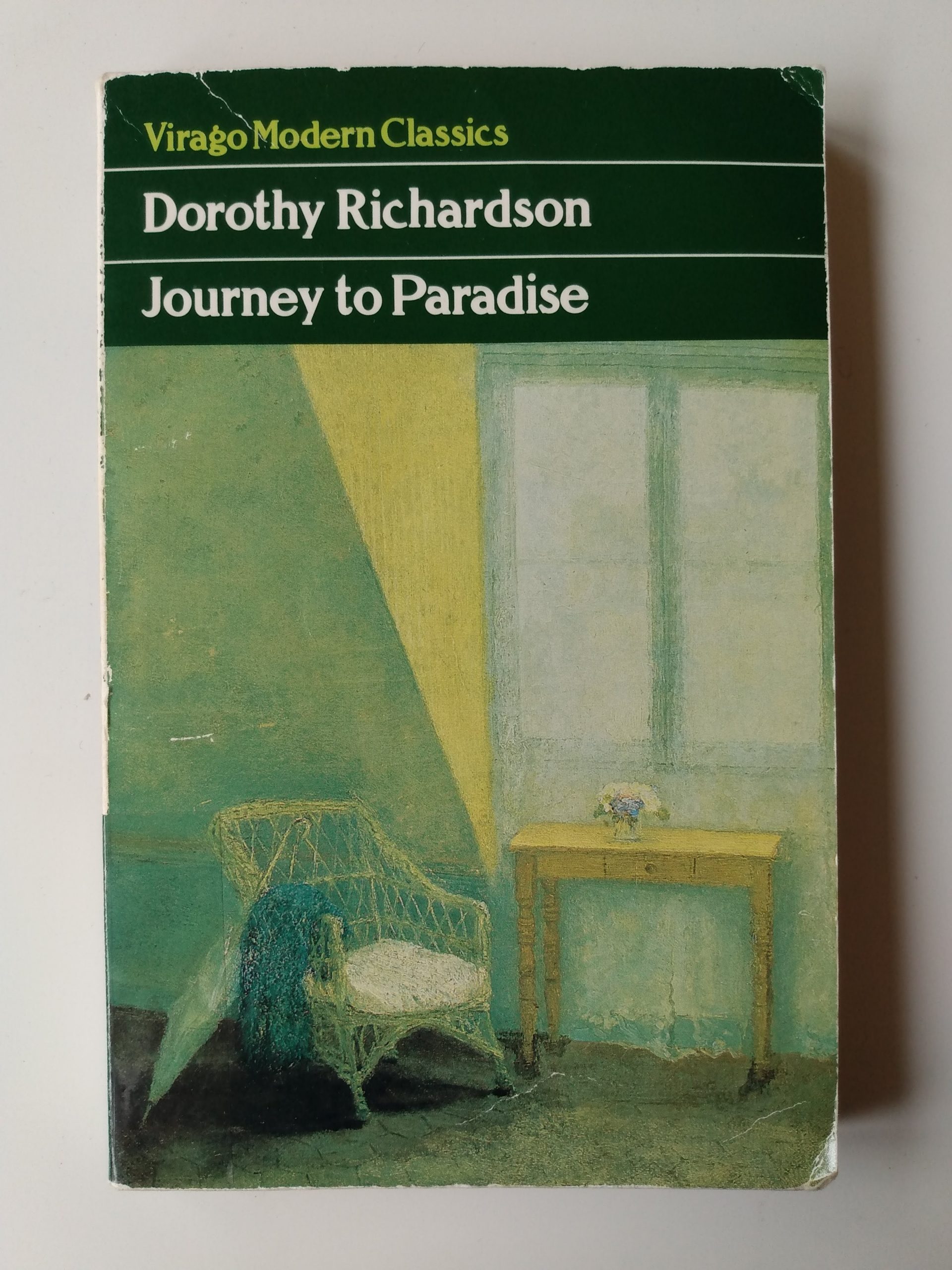Journey to Paradise, by Dorothy Richardson
I'll be honest; I didn't like this book. Now I'm not averse to books that are complicated and require a bit of brain engagement to understand. I'll read a book that's unconventional in the way it presents the narrative. And I can even fall in love with a book that was uninspiring when I read it for pleasure the first time, but is brought to life when you study it in depth and realise that it is the brain-boggling convention-challenging complexities that make it so clever (cough cough The Handmaid's Tale). But I'm finding it a struggle to fall in love with this one, I'm afraid. Here's why.

'Journey to Paradise' is a collection of short stories. And generally I wasn't quite sure what to make of them. One thing that struck me whilst reading was that the use of language was at times beautiful - for example, most of the story 'Tryst' involved long lyrical descriptions of the coastline, and it was stunningly written with some gorgeous metaphors and some exquisite word choices. But I was aware that this was very much a surface reading - if my only take-away from the whole collection was that I liked her description of the coast then I think I would be missing something. So I tried to think about the meaning of the collection, the theme of the collection, the point of the collection - but I drew a bit of a blank.
The stumbling block for me was that it was just so hard to understand. It was written in a stream-of-consciousness style all the way through, which meant two things. It meant that the sentences were frequently long and rambling, and it meant that rather than narrative action there was more of a focus on thoughts and perspectives, which was complex because the characters' minds often wandered or made strange leaps or focussed on unexpected details.
Even after wading through the wordiness of the stream of consciousness, the content of the stories was fundamentally confusing. A lot of things were left ambiguous. For example, at the end of 'Sunday' the character alights upon a thought ('I had thought the thought ... I had found out how to do it') but the story ends before we're told what the 'it' is. The story 'Nook on Parnassus' was about someone gift shopping, but it was only halfway through that we were told what item they were actually trying to buy. And the story that gave the collection its title - 'Journey to Paradise' - might be more accurately described as 'Journey', because I'm not convinced paradise was ever actually reached.
The obscurity was heightened by the absence of a clear genre. The collection seemed to defy all genre conventions - of short story collections, and of narratives in general - in a rather slippery and nebulous manner. Often short stories have a poignant ending or a twist - but some of these did and some didn't. Some of the stories labelled 'autobiographical' were in third person and detached from Richardson's identity, while counterintuitively some of the fictional stories seemed purely autobiographical. 'Summer' was the only story split into seven chapters. 'Excursion' changed from first-person to third-person halfway through, so that we lost track of our narrator.
It was only by reading the analytical introductory notes that I discovered that all these features were completely deliberate. Trudi Tate, author of the notes, writes: 'Often they [the stories] are rather odd and show a strong resistance to obvious or fixed meanings.' Richardson's style is described as 'opaque writing' that is 'curiously decentred, giving unexpected weight to things mentioned in passing and undermining the importance of her apparent subject.' This absolutely aligns with my reading experience, (which was quite a relief to be honest!) and I found it intriguing that Richardson was consciously being so evasive.
I realise that Richardson was intending to challenge and undermine the conventional narrative. She was provoking questions about what a story is. It was this kind of modern radicalism that earnt Richardson her renown. And perhaps I'm still missing the point, but the collection's elusiveness frustrated me. Sometimes a frustrating narrative works extremely well to make a wider point (like Catch-22), but for me the concept of obstructing the conventional narrative, for no apparent reason other than to challenge notions of what constitutes a story, didn't really take me beyond my frustration.
So I wasn't a massive fan. I found it a little too abstruse to be enjoyable, and I still can't quite fathom the point of it. However. Someone who knows what he's on about said to me once that "if you read something from the literary canon and you think it's rubbish, you're wrong" - so I am extremely open to having my mind changed on this one. Perhaps one day I'll study it in depth and realise how clever it is, or someone who loves it might open my eyes to why it is so revered. I await the day with genuine intrigue. Until then, unless you're looking for something particularly esoteric and enigmatic to read, I wouldn't recommend.
